obesity and many more life-threatening risk factors, one of the most leading cause of death and a dominant barrier to increase life expectancy in modern world is cancer. According to GLOBOCAN 2020, an estimated of 19.3 million new cancer cases (18.1 million excluding non-melanoma skin cancer) and nearly 10.0 million cancer deaths (9.9 million excluding non-melanoma skin cancer) has occurred, led cancer to ranks first or second main cause of death in nearly 112 or 183 countries and third or fourth in further 23 countries. On the basis of an estimation 1 in 3 people in the US are affected by cancer. According to the latest ranks and epidemiologic trends, cancer’s rising prominence as a leading cause of death, which leads to cardiovascular disease ranks suppressed by cancer as a dominant cause of death. According to the latest cancer estimation, Breast cancer is the most leading type of cancer, with 284,200 new cases expected in the US in 2021, the next most common cancers are lung cancer, colorectal cancer, prostate cancer, non-melanoma skin cancer and stomach. The most common causes of cancer death in 2020 were lung, colorectal, liver, stomach and breast cancer.
Targeted therapies are now new class of interest for cancer due to the advantages efficacy, selectivity and safety by acting on specific targets involved in proliferation and differentiation of cancer cells with minimal activity on normal cells compared with traditional oncologic ones. Small molecule inhibitors are one of the targeted cancer therapies, you can easily spot small molecule medicines because their generic name ends in “-ib.” By December 2020, 89 small-molecule targeted antitumor medicines have been approved by the US FDA.
Hence, one of Parsian’s biggest fields of activity is research and development in oncology to manufacture active pharmaceutical ingredients (API) and Granules of small-molecule targeted antitumor medicines along with other cancer treatments with the highest global standards to help patients battling with cancer to be cured in a better way by the latest guidelines and with the lowest adverse effects.

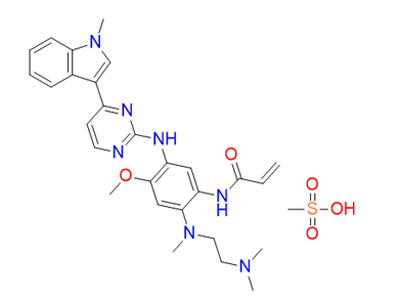
Oncology
Cas No: 1421373-66-1
Mechanism Of Action: Osimertinib is an EGFR tyrosine kinase inhibitor that binds to certain mutant forms of EGFR (T790M, L858R, and exon 19 deletion) that
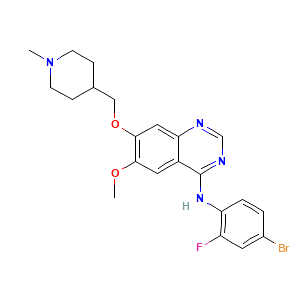
Oncology
Cas No: 443913-73-3
Mechanism Of Action: Vandetanib is a selective and potent inhibitor of VEGFR (vascular endothelial growth factor receptor), EGFR (epidermal growth factor receptor) and RET (RE-arranged
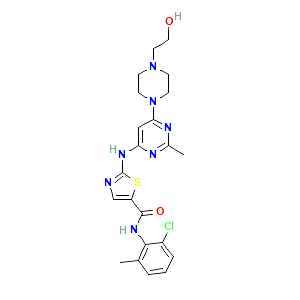
Oncology
Cas No: 302962-49-8
Mechanism Of Action: Dasatinib, at nanomolar concentrations can inhibit the following kinases: BCR-ABL, SRC family (SRC, LCK, YES, FYN), c-KIT, EPHA2, and PDGFRβ. Based on
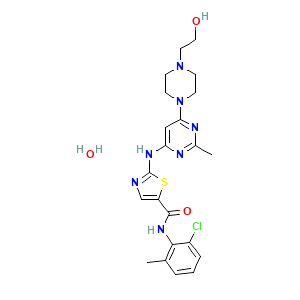
Oncology
Cas No: 863127-77-9
Mechanism Of Action: Dasatinib, at nanomolar concentrations can inhibit the following kinases: BCR-ABL, SRC family (SRC, LCK, YES, FYN), c-KIT, EPHA2, and PDGFRβ. Based on
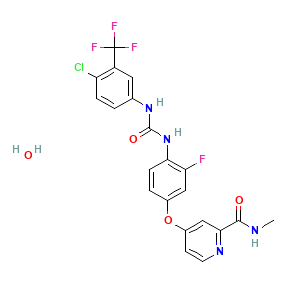
Oncology
Cas No: 1019206-88-2
Mechanism Of Action: Regorafenib is an inhibitor of multiple membrane-bound and intracellular kinases involved in normal cellular functions and in pathologic processes including, oncogenesis, tumor
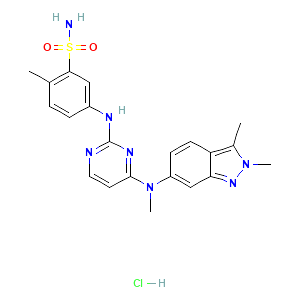
Oncology
Cas No: 635702-64-6
Mechanism Of Action: Pazopanib is a second-generation multi-targeted tyrosine kinase inhibitor against vascular endothelial growth factor receptor-1, -2, and -3, platelet-derived growth factor receptor-alpha, platelet-derived
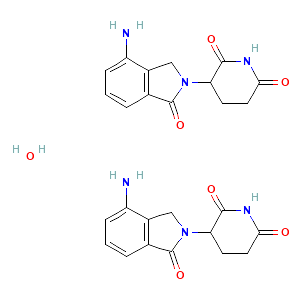
Oncology
Cas No: 847871-99-2
Mechanism Of Action: Exhibits immunomodulatory properties. Activates and increases number of T cells and NK cells Increases number of NKT cells Inhibits pro-inflammatory cytokines (e.g.,
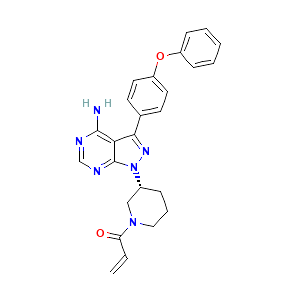
Oncology
Cas No: 936563-96-1
Mechanism Of Action: The B cell receptor (BCR) pathway regulates lots of cellular processes including, proliferation, differentiation, and apoptosis which are essential for the functioning
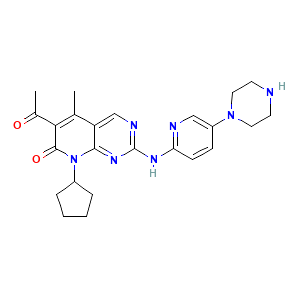
Oncology
Cas No: 571190-30-2
Mechanism Of Action: Palbociclib is a CDK4/6 inhibitor that acts by binding to the ATP pocket. The CDK4/6 kinase is involved in the G1-S transition, so,
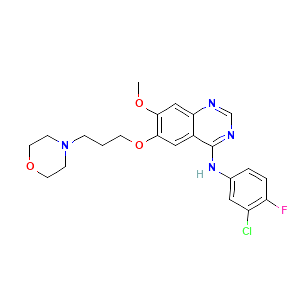
Oncology
Cas No: 184475-35-2
Mechanism Of Action: Gefitinib is an EGFR tyrosine kinase inhibitor that binds to the ATP-binding site of the enzyme. It is the first selective inhibitor